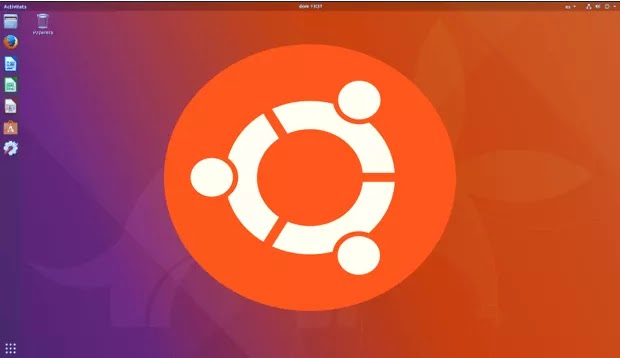In INDIA, Cyber crime rises about 457 percent in 5 Years as per ASSOCHAM-NEC joint study.
The cyber crime incidents under the Information Technology (IT) Act, 2000 from the year 2011 to 2016.
Less Cyber awareness would be the reason to increase in cyber crime. Data Security and privacy is most important for users.
According to Symantec Corp ranked INDIA among top five countries to be affected by Cyber Crime, between 2012-17, INDIA is the third largest country in the world after USA and China, the number of internet users have increased at a Compound Annual Growth Rate (CAGR) of 44%.
Also Read- The Risks of Public WiFi
According to Economic Times, the INDIAN law enforcement agencies are aware of the using latest technologies like Artificial Intelligence, Big Data Analytics, Facial Recognition, Internet of Things (IoT) and other.
However, the implementation of these technologies is not on a national level but on a state level. The government of INDIA has taken steps to curb cyber crimes but additional development in terms of detecting and resolving cyber crime has to be incorporated for effective control, said in the report.
State government and cyber police are developing new anti-cyber crime measures and gathering methods to tackle it with the help of private organizations. There are many cyber crime cases are still pending.
Also Read- Top List of Biggest Hacks in 2018
How To Protect Against Cyber Crime
Use Internet Security instead of Antivirus.
Keep Strong Password.
Do not use same password, create different password for different sites.
Use Two-step verification and Google Authy
Do not click on unknown link and email attachment
Do not store your bank account details on websites.
Use special Keywords in Password.
Don’t give any personal information on the phone.
Cyber Laws In INDIA-
Information Technology (IT) Act 2000
Indian Penal Code (IPC) 1860
SECTIONS UNDER IT ACT 2000:
Sec. 65- Tampering with Computer source documents
Whoever intentionally or knowingly destroys, conceals or changes any computer’s source code that is used for a computer, computer program, and computer system or computer network.
Sec. 66- Hacking with computer systems, data alteration
Whoever with the purpose or intention to cause any loss, damage or to destroy, delete or to alter any information that resides in any person’s computer.
Sec.67- Publishing obscene information
Whoever transmits or publishes or cause to publish any obscene material in electronic form. Any material that is vulgar or appeals to be lubricious or is meant to corrupt any individual who is likely to have regard to all relevant circumstances to read or to see or to hear the matter that contained in it shall be sentenced on the first convict with a term that may extend up to five years of imprisonment.
Sec. 68- Failure/refusal to comply with orders
The Controller may, by order, direct a Certifying Authority or any employee of such Authority to take such measures or cease carrying on such activities as specified in the order if those are necessary to ensure compliance with the provisions of this Act, rules or any regulations made thereunder. Any person who fails to comply with any such order shall be guilty of an offence.
Penalty- Imprisonment up to three years, or/and with fine up to ₹200,000
Sec. 69- Failure/Refusal to decrypt data
If the Controller is satisfied that it is necessary or expedient so to do in the interest of the sovereignty or integrity of India, the security of the State, friendly relations with foreign Stales or public order or for preventing incitement to the commission of any cognizable offence, for reasons to be recorded in writing, by order, direct any agency of the Government to intercept any information transmitted through any computer resource. The subscriber or any person in charge of the computer resource shall, when called upon by any agency which has been directed, must extend all facilities and technical assistance to decrypt the i
The cyber crime incidents under the Information Technology (IT) Act, 2000 from the year 2011 to 2016.
Less Cyber awareness would be the reason to increase in cyber crime. Data Security and privacy is most important for users.
According to Symantec Corp ranked INDIA among top five countries to be affected by Cyber Crime, between 2012-17, INDIA is the third largest country in the world after USA and China, the number of internet users have increased at a Compound Annual Growth Rate (CAGR) of 44%.
Also Read- The Risks of Public WiFi
According to Economic Times, the INDIAN law enforcement agencies are aware of the using latest technologies like Artificial Intelligence, Big Data Analytics, Facial Recognition, Internet of Things (IoT) and other.
However, the implementation of these technologies is not on a national level but on a state level. The government of INDIA has taken steps to curb cyber crimes but additional development in terms of detecting and resolving cyber crime has to be incorporated for effective control, said in the report.
State government and cyber police are developing new anti-cyber crime measures and gathering methods to tackle it with the help of private organizations. There are many cyber crime cases are still pending.
Also Read- Top List of Biggest Hacks in 2018
How To Protect Against Cyber Crime
Use Internet Security instead of Antivirus.
Keep Strong Password.
Do not use same password, create different password for different sites.
Use Two-step verification and Google Authy
Do not click on unknown link and email attachment
Do not store your bank account details on websites.
Use special Keywords in Password.
Don’t give any personal information on the phone.
Cyber Laws In INDIA-
Information Technology (IT) Act 2000
Indian Penal Code (IPC) 1860
SECTIONS UNDER IT ACT 2000:
Sec. 65- Tampering with Computer source documents
Whoever intentionally or knowingly destroys, conceals or changes any computer’s source code that is used for a computer, computer program, and computer system or computer network.
Sec. 66- Hacking with computer systems, data alteration
Whoever with the purpose or intention to cause any loss, damage or to destroy, delete or to alter any information that resides in any person’s computer.
Sec.67- Publishing obscene information
Whoever transmits or publishes or cause to publish any obscene material in electronic form. Any material that is vulgar or appeals to be lubricious or is meant to corrupt any individual who is likely to have regard to all relevant circumstances to read or to see or to hear the matter that contained in it shall be sentenced on the first convict with a term that may extend up to five years of imprisonment.
Sec. 68- Failure/refusal to comply with orders
The Controller may, by order, direct a Certifying Authority or any employee of such Authority to take such measures or cease carrying on such activities as specified in the order if those are necessary to ensure compliance with the provisions of this Act, rules or any regulations made thereunder. Any person who fails to comply with any such order shall be guilty of an offence.
Penalty- Imprisonment up to three years, or/and with fine up to ₹200,000
Sec. 69- Failure/Refusal to decrypt data
If the Controller is satisfied that it is necessary or expedient so to do in the interest of the sovereignty or integrity of India, the security of the State, friendly relations with foreign Stales or public order or for preventing incitement to the commission of any cognizable offence, for reasons to be recorded in writing, by order, direct any agency of the Government to intercept any information transmitted through any computer resource. The subscriber or any person in charge of the computer resource shall, when called upon by any agency which has been directed, must extend all facilities and technical assistance to decrypt the i
















0 Comments